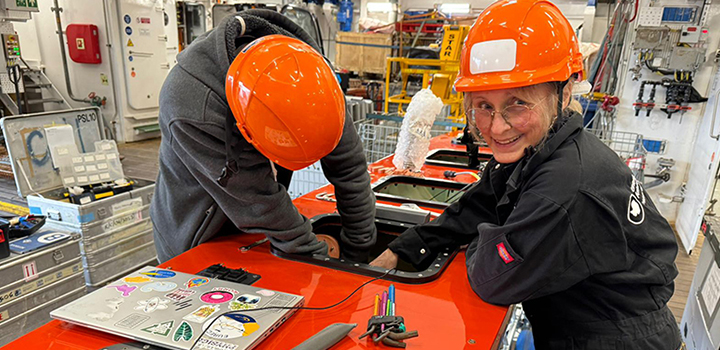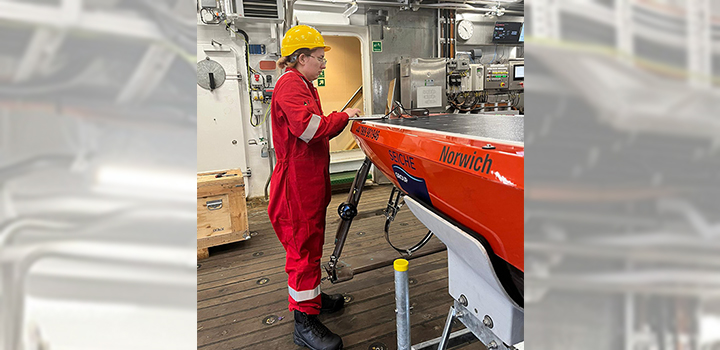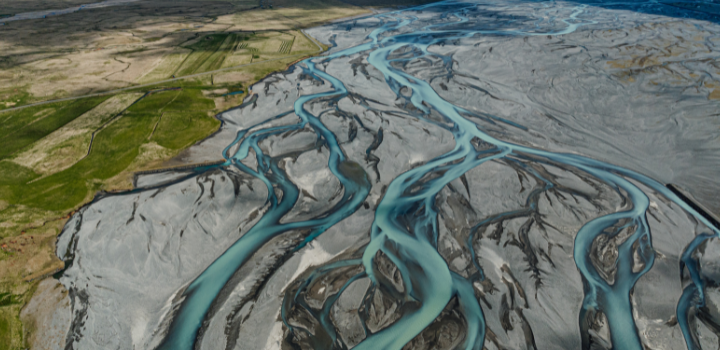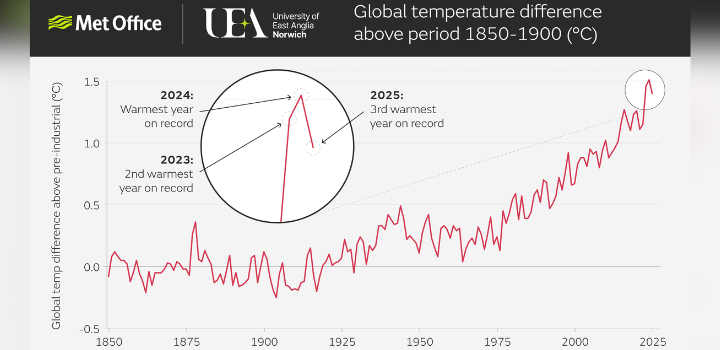Unlocking the Antarctic’s carbon secrets
By: Communications

A team of scientists, led by UEA's Prof Karen Heywood, have embarked on an expedition to the Antarctic to investigate how carbon dioxide moves and transforms in the Southern Ocean.
Colleagues from the Development and Campaigns team have been actively promoting Prof Heywood's work with UEA's donor audience, including through their climate change research donation page.
The teams, stemming from a variety of institutions, will be aboard the RRS Sir David Attenborough and their findings will be used to inform decisions on international climate change policy. Over the course of the 52-day PICCOLO expedition (Processes Influencing Carbon Cycling: Observations of the Lower limb of the Antarctic Overturning), they will be highlighting life aboard the ship, the challenges and joys of working in such an extreme environment and, most importantly, the impactful research being undertaken.

Image: UEA's Gareth Lee and Prof Karen Heywood build the autonomous surface vessel Caravela. They hope to deploy it in the Antarctic to measure the effects of cold winds on the surface of the ocean.
The scientists on board are hoping to learn more about the biological, chemical and physical processes that draw carbon deep into the Southern Ocean.
The seawater at the surface near Antarctica interacts with the atmosphere, absorbing carbon and losing heat. The carbon in this water is then altered by the miniature ocean plants and plankton, before descending to the ocean depths, carrying the carbon with it. By understanding more about this process, the researchers can improve models that make predictions about our future climate. They will make use of the latest technologies, such as ocean gliders and floats, to observe these processes in places that, until now, have been inaccessible and unstudied, like under the sea ice.
The team will also drill holes in the sea ice to collect samples, as well as tagging seals with instruments which will continuously collect data about the ocean as they dive up and down through the water. The data will be sent back to scientists in real-time via satellite communication.
The observations and data from this project will be fed into earth system models, to help make more accurate climate predictions

Image: UEA PhD student Beth Siddle conducts the final checks of autonomous surface vessel Caravela. Credit: Karen Heywood.
The team, including Lead Principal Investigator Prof Karen Heywood, began their journey at Norwich train station and over 36 hours, and the small matter of 13,000km, made it to Puntas Arenas in Chile at the southernmost tip of South America.

Image: The UEA PICCOLO team at Norwich train station, about to begin their 13,000 km trip to Punta Arenas, from where the expedition embarked.
On 17 January, the group, alongside a multi-national team of researchers from other institutions, embarked on their journey to Antarctica aboard RRS Sir David Attenborough and are due to return in mid-March.
Related Articles

New analysis of climate threats to biodiversity will help conservationists plan for future
Scientists have published the most comprehensive assessment to date of how climate change threatens biodiversity in more than 98,000 protected areas worldwide, aiming to help conservationists build resilience in the face of accelerating climate impacts.
Read more
Scientists discover how fast the world’s deltas are sinking
New research involving the University of East Anglia (UEA) reveals how fast the world’s deltas are sinking and the human-driven causes.
Read more
2025 continues series of world’s three warmest years
2025 is the third warmest year on record in a series from 1850, following 2024 and 2023, according to new data released today.
Read more